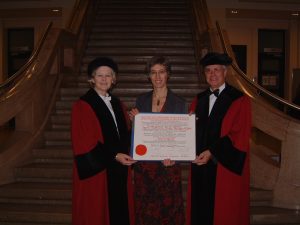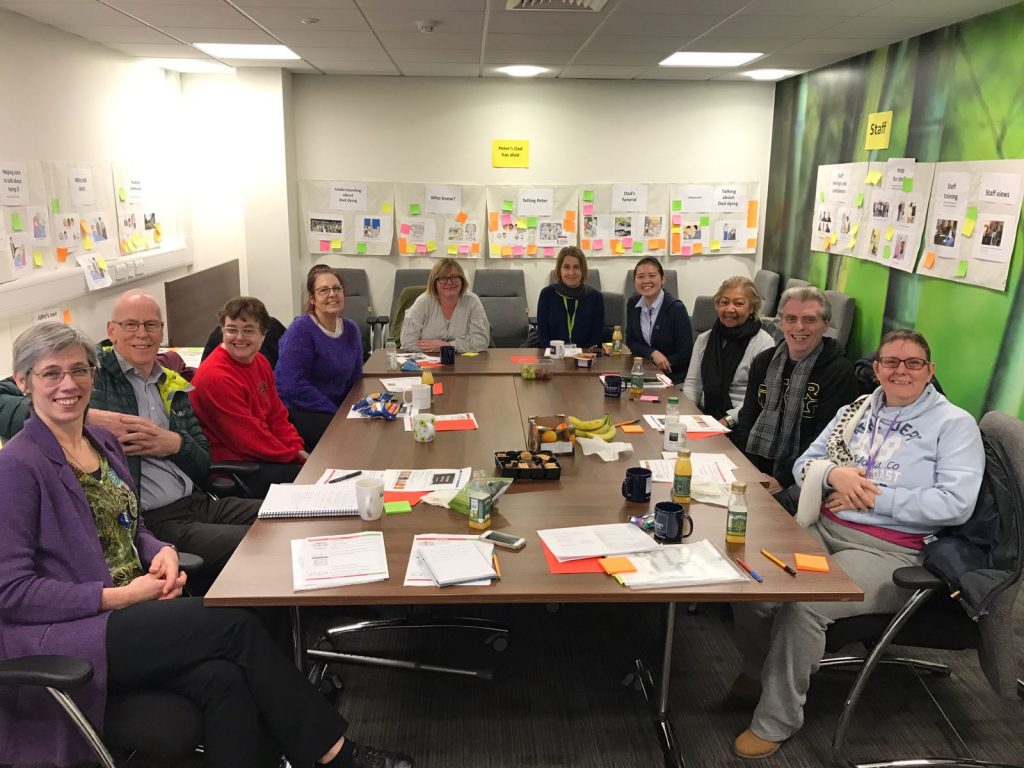I’ve just been made a professor.
My son’s friend, who happened to be around last night when we raised a glass of bubbly to toast this new status, asked “What does it mean, to be a professor?”
Good question. I suppose a professor is someone who professes. I looked it up.
profess v. 1 to affirm or announce (something, such as faith); acknowledge 2 to claim, often insincerely or falsely
To be a professor, it seems, is to sit on the Chair you’ve been given and announce your faith. Hopefully not too insincerely or falsely. I am supposed to know stuff; to spread the word; to make sure others know it too; to make sure others care about it too.
When I gained my doctorate, just over a decade ago, it felt like an achievement.
I hadn’t really wanted to do a PhD. It seemed rather a lot of work, and with three very young children at home, was that really a sensible way to use my energy? And anyway, I wasn’t really interested in highbrow academic stuff unless it was relevant to the real world. I had only recently left the bedside and my heart was still very much (and remains today) with the experiences of patients and families.
But my inspirational supervisors, Professor Leopold Curfs and Professor (now Baroness) Sheila Hollins, talked me into it. “You’ll be able to achieve more once you can call yourself Doctor”, they claimed. “Get research funding, publish papers…”
So I worked into the evening hours, writing papers after my toddlers had gone to bed. There was a rather lovely ceremony at Maastricht University when I was handed my oversized PhD certificate – gaining your doctorate is properly celebrated in the Netherlands.
And my supervisors were right. I didn’t say anything new, but once I got my title, people started to take notice. It happened almost overnight.

With my PhD supervisors, Prof Baroness Sheila Hollins and Prof Dr Leopold Curfs (2007)
Gaining a professorship feels not so much an achievement, but a responsibility.
Professors, I imagine, will be taken even more notice of than Doctors. There are a lot of people who have lifted me up to my chair. People who have things to say that are just as important, but who may be believed less, because they don’t have the status and the power.
People who experience the issues that I have been talking and writing about: illness, death, dying, bereavement. People with intellectual disabilities. Families. Care staff. Service managers. Nurses.
I have been inspired and propelled forward by my colleagues in London, across the UK, across the world – not just the senior ones (like the wonderful professors who have been my role models) but also the more junior ones, the research assistants, our research advisors: the people asking the questions and the people helping to answer them.
Now that I have been given a Chair, it looks like it’s my job to announce the things we have found to be true, collectively, as a research community. That is indeed a responsibility and a privilege.
I intend to not just sit on it, but stand on it.

Some members of my research community. Academics, people with intellectual disabilities, care staff, nurses, families, service managers… I need them all!

Congratulations Irene x